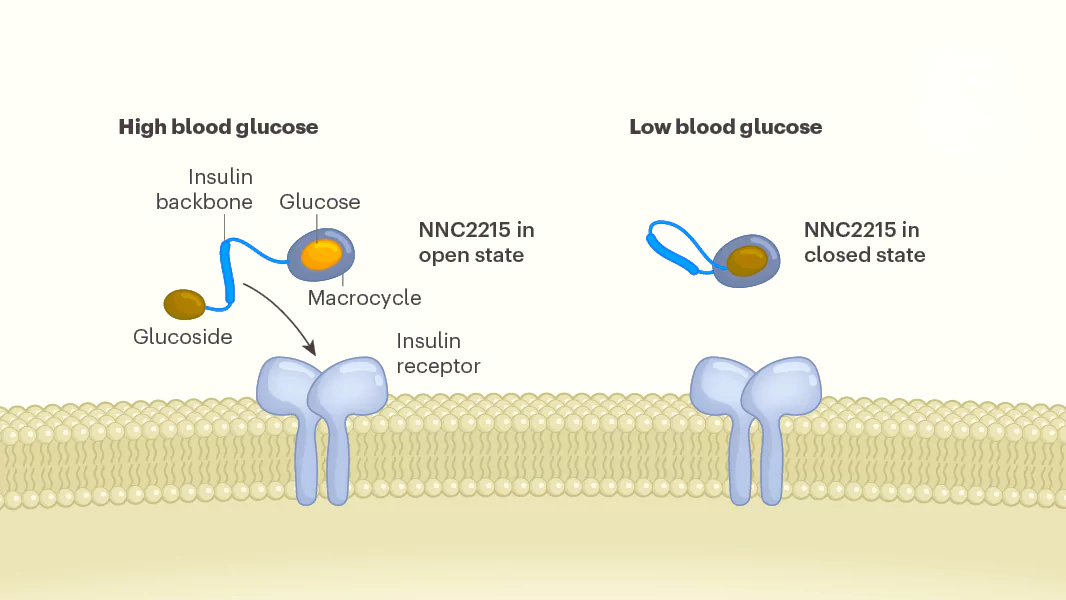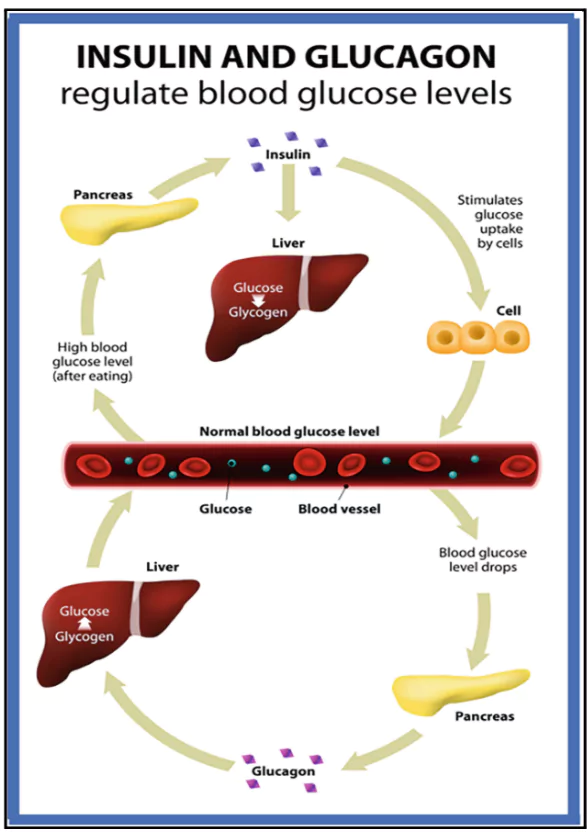Scientists have developed a “smart” insulin NNC2215 that can adjust in real time to changes in blood sugar levels, a long-sought “holy grail” in diabetes treatment, according to research published in the journal Nature.
About Smart Insulin (NNC2215)
- Smart insulin is a drug designed to circulate in the body and turn on when it’s needed and off when it’s not.
- NNC2215 is a smart insulin that consists of two key components:
- A ring-shaped structure and a glucoside molecule (similar in shape to glucose).

How NNC2215 Works?
- When blood sugar levels are low, the glucoside binds to the ring, keeping the insulin inactive to prevent further lowering of blood sugar.
- As blood glucose levels rise, glucose replaces the glucoside, causing the insulin to change its shape and become active, helping to lower blood sugar to safer levels.
Enroll now for UPSC Online Course
About Diabetes
- Diabetes is a non-communicable disease (NCD) that occurs either when the pancreas does not produce enough insulin or when the body cannot effectively use the insulin it produces.
- Insulin is the hormone responsible for regulating blood sugar (glucose).
Types of Diabetes

- Type 1 Diabetes: The immune system destroys insulin-producing beta cells in the pancreas and the body produces very little or no insulin.
- Commonly diagnosed in children and young people, hence called Juvenile Diabetes.
- Type 2 Diabetes: Results from the body’s ineffective use of insulin it produces.
- It is often associated with lifestyle factors and is more common in adults.
- Gestational Diabetes: Occurs in women during pregnancy when the body becomes less sensitive to insulin.
- Typically temporary but can increase the risk of developing type 2 diabetes later.
Impacts of Diabetes: Diabetes can affect five major organs ie Kidneys, Heart, Blood vessels, Nervous system and Eyes (retina).
![]() 19 Oct 2024
19 Oct 2024

